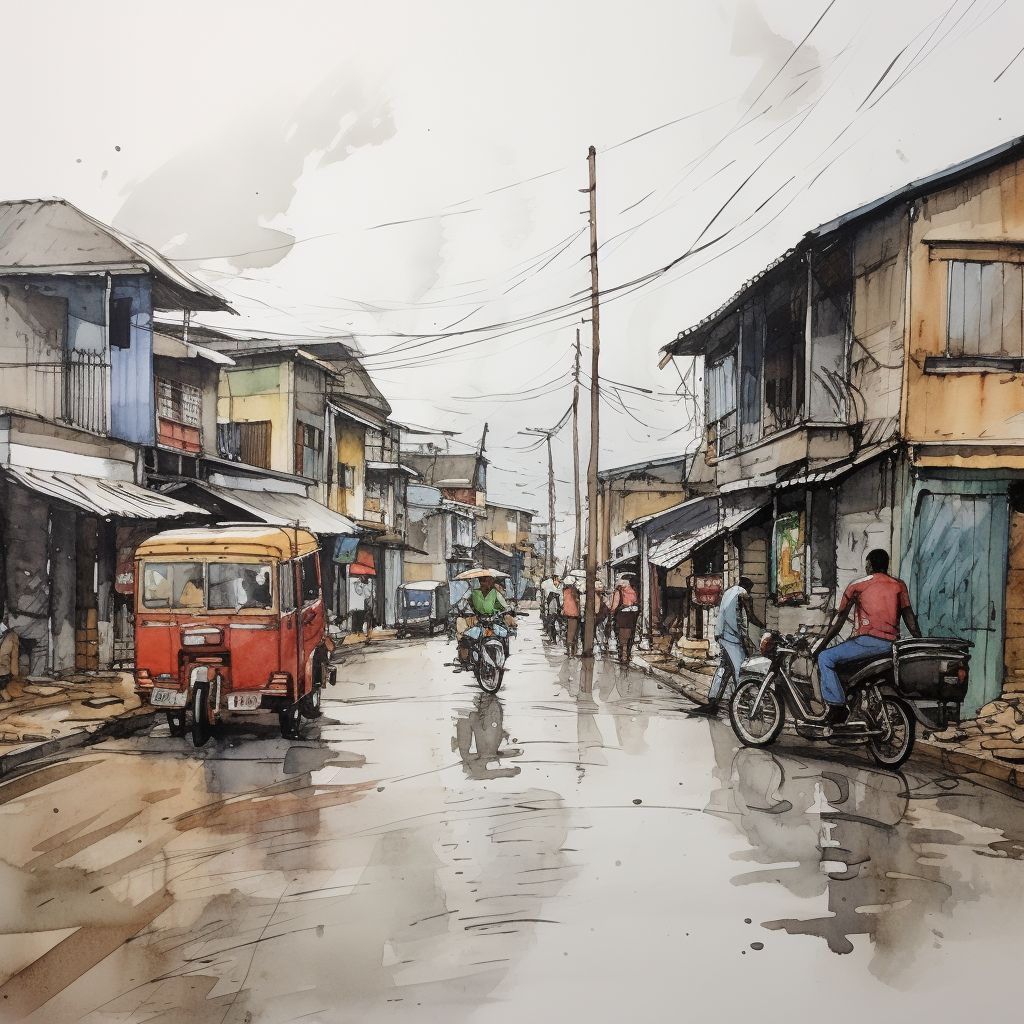Sierra Leone’s capital, Freetown, was quiet and peaceful on Wednesday as President Julius Maada Bio began his second term in office. Despite concerns over the election’s credibility and potential violence, the city remained calm.
President Bio Narrowly Wins the Election
President Bio, leader of the Sierra Leone People’s Party (SLPP), won a narrow victory in the first round of voting, capturing 56.17% of the ballot. The election was a rematch between Bio and his main rival, Samura Kamara of the All People’s Congress (APC), which mirrored a close race in 2018. However, allegations of a lack of transparency in vote counting and intimidation by security forces marred Bio’s victory.
Freetown Residents Express Relief and Happiness
The streets of Freetown reflected a sense of relief among residents. As the city embraced the start of the Muslim festival of Eid, women sold food at the market, and commercial drivers of motorcycles and tuk-tuks navigated rain-soaked streets in search of customers. Many expressed happiness at the peaceful atmosphere, allowing them to go about their daily business.
Citizens Express Mixed Views on Election Results
While some, like Amanda, a 40-year-old hotel employee, expressed happiness with the peaceful process, others like Alpha Kaloko, a 20-year-old bike rider, expressed dissatisfaction with the election results, citing the need for change and questioning the fairness of the process.
Challenges Facing Sierra Leone Amidst the Covid-19 Pandemic
Bio’s victory comes amid mounting challenges for Sierra Leone as the country struggles with the effects of the Covid-19 pandemic and soaring inflation rates. The recent violence at the APC headquarters, which resulted in one fatality, has also raised tensions.
Western Nations Urge Sierra Leone to Resolve Disputes Peacefully
Despite the turmoil, Western nations have urged Sierra Leone to resolve disputes through peaceful means and adherence to the rule of law. A joint statement issued by the United States, European Union, France, Ireland, and Germany highlighted concerns about the transparency of the vote tallying process.
Calls for Addressing Transparency Issues
The EU’s observation mission reported “statistical inconsistencies” and barriers to observing the verification of results forms. Calls have been made for the electoral commission to publish disaggregated results by polling station to address these issues.
Parliamentary and Local Elections Results Yet to be Announced
In addition to the presidential election, parliamentary and local elections were held, with results yet to be announced. National Election Watch, a coalition of civil society groups, has questioned the electoral commission’s announcement of an 83% turnout, claiming that their calculations suggest a figure between 75.4 and 79%.
Former US Ambassador Acknowledges Flaws in Election Process
Cameron Hume, a former US ambassador who led an observation mission by the Carter Center, acknowledged some flaws in the electoral process. He noted that while voting appeared credible, subsequent problems with the delivery of ballots and opening of ballot boxes at tabulation centers raised concerns about the “chain of credibility.”
As Sierra Leone moves forward into President Bio’s second term, the nation must address concerns and foster an environment of peaceful dialogue and transparency.









